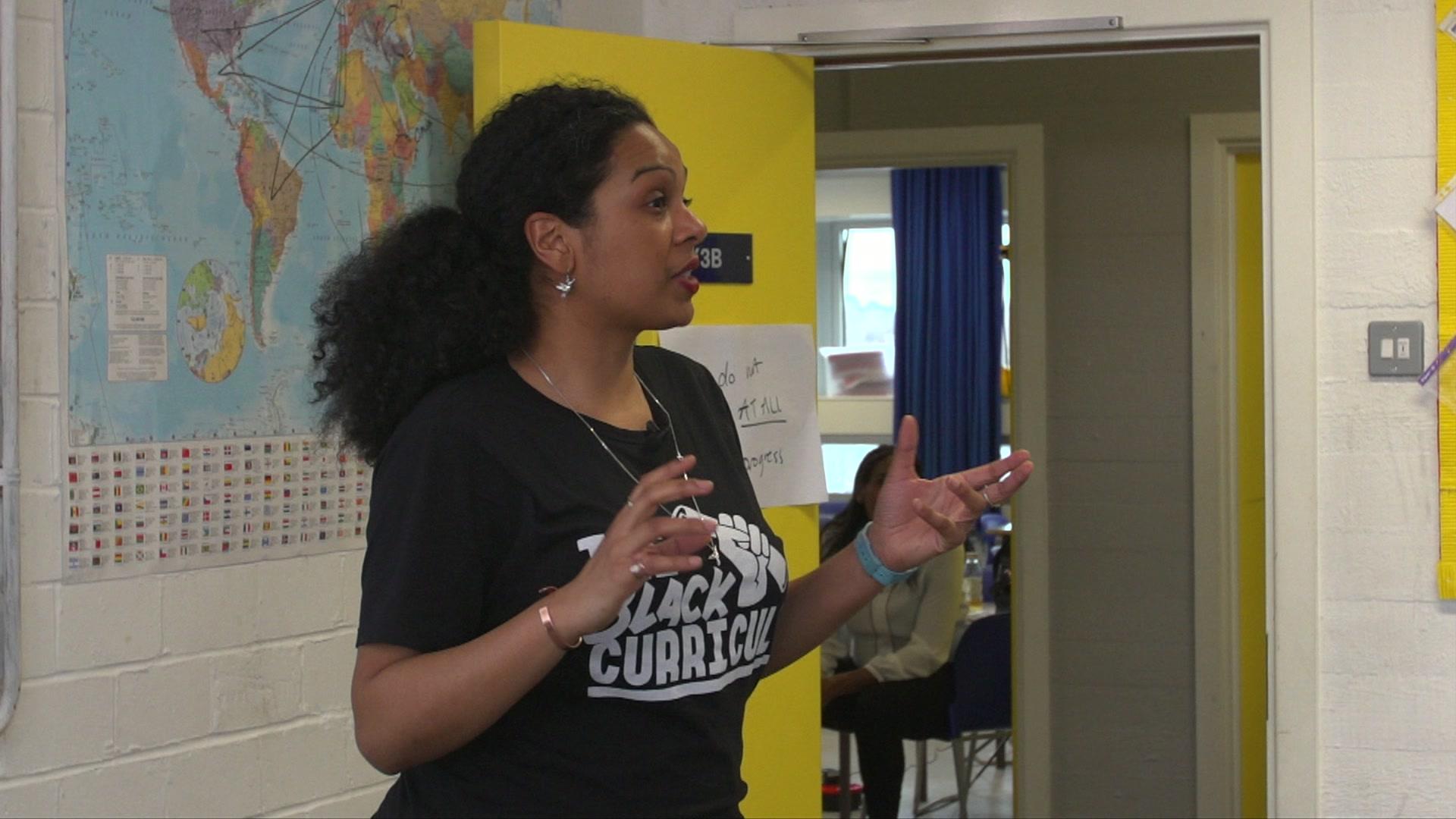David Olusoga: 'We're living through a moment of profound change'
- Published
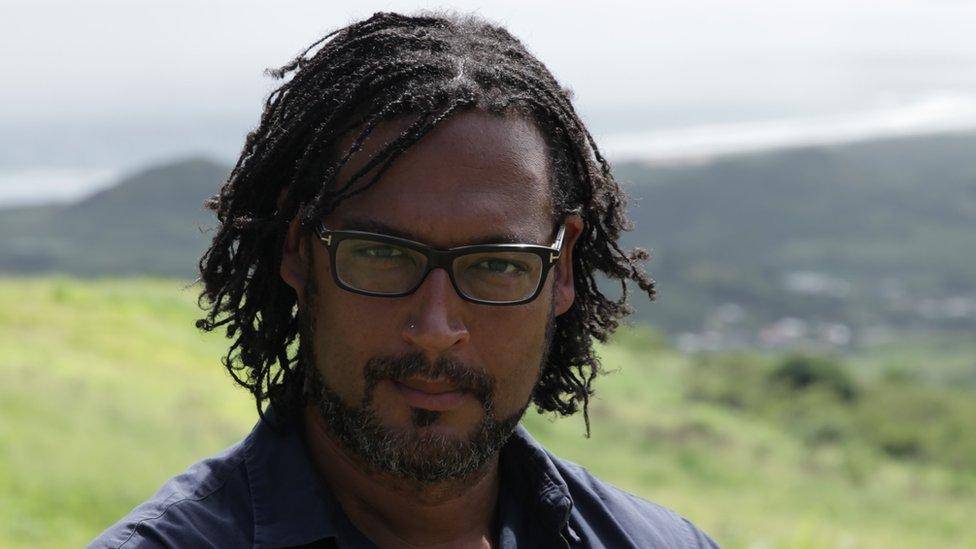
Prof David Olusoga has presented numerous documentaries including A House Through Time and Black and Black and British: A Forgotten History
As Black British History Month draws to a close, TV historian Prof David Olusoga looks at the impact it's had - and how young people are taking it on.
"The way history is viewed is changing. It's possibly a deeper change than some people realise because I don't think what we're living through is a series of political events; I think we're living through a generational shift," he says.
It's all down to people in their 20s, those at school and in their teens, who have a relationship with history which, says Prof Olusoga, is profoundly different from that of their parents and grandparents.
"They do not want British history to be a catalogue of heroes and victories and glorious chapters," he says.
"They look to history not just for inspiration and comfort, not just for heroes and for glorious chapters; they look for history expecting to find challenging stories, painful stories, dark truths, villains as well as heroes.
"They're not looking to history only to make them feel good and give them comfort, but they're looking to history to tell them things about truths about their society that we have traditionally edited out of British history."
It's against this backdrop that Black British History Month was created.
First launched in London in 1987, it aims to highlight and celebrate what black people have achieved in Britain throughout history.
Prof Olusoga, the presenter of the A House Through Time TV series, calls it an act of "historical salvage" to bring to the fore the black British figures who had been "lost in the archives, completely forgotten".
"They were barely known even to historians.
"The small minority whose history had been airbrushed out of the national story recovered that history with the help of their allies and then broadcast it, spread it into our national conversation and they did that within the space of half a century. I think it's an astonishing achievement."
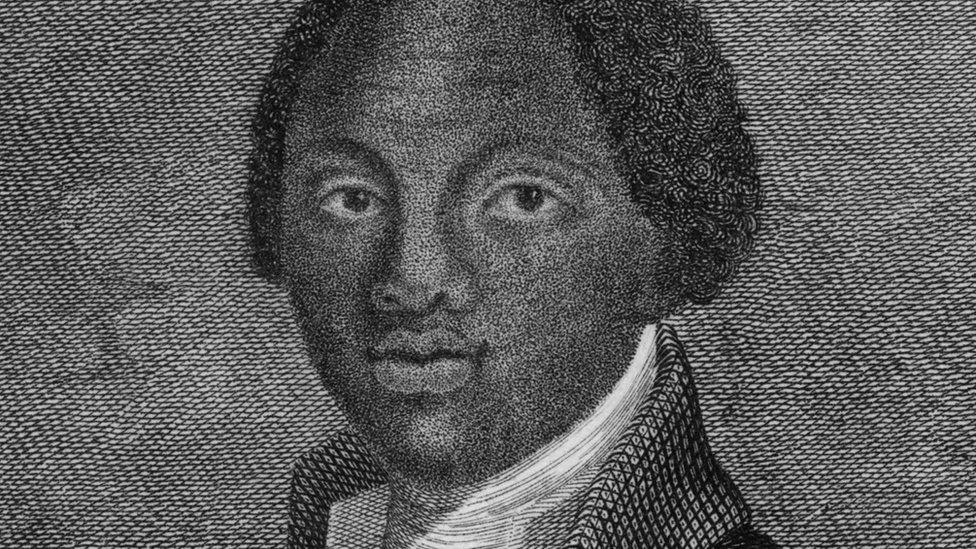
Olaudah Equiano played a role in Britain's abolishment of slavery
One person who had a huge impact on Britain was Olaudah Equiano, an enslaved man who bought his freedom and wrote compellingly about his experiences. He was a prominent figure in the campaign to abolish slavery.
His autobiography, The Interesting Narrative of the Life of Olaudah Equiano, details how he was sold into slavery aged 11, his experience of travelling the world as slave to a Royal Navy officer - who renamed him Gustavus Vassa - and how he bought his freedom from his final master, an English merchant in Montserrat.
It has been reissued by publishing house Hodder and Prof Olusoga has written the foreword.
"Equiano is the most important voice that we have from the British experience of slavery and the slave trade," he said.
"I first read it as a student and it struck me as something that was very different to other things I was reading about the Atlantic slave trade.
"He was the voice of somebody who wasn't speaking about the past as a historian, but was living it. He was immersed in it. It was the first of the slave narratives that I'd ever read and I found it astonishing."
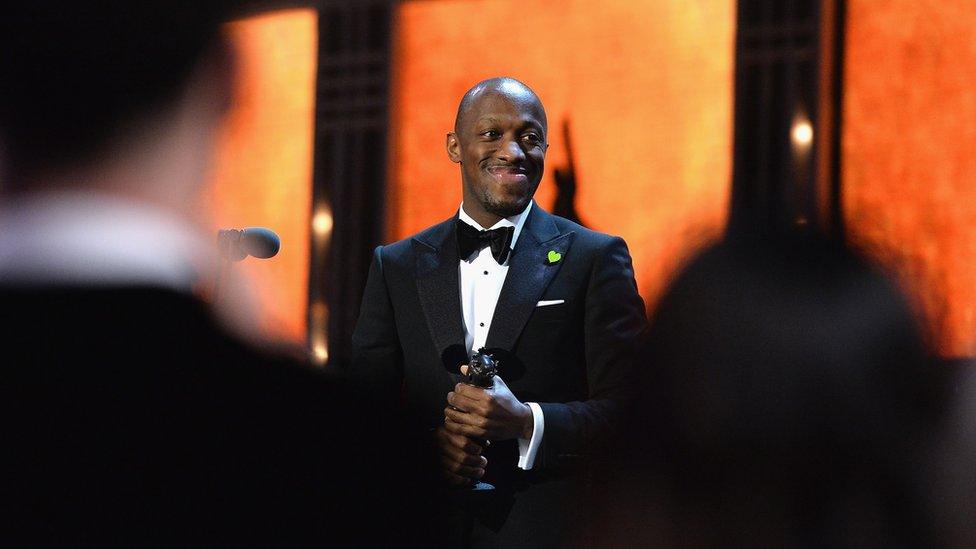
Performer Giles Terera has written a play featuring Equiano
Prof Olusoga is not the only person who has been drawn to Equiano's story. Giles Terera, the Olivier award-winning British performer who starred in the popular theatre production Hamilton, has recently staged a play called the Meaning of Zong about the massacre of 132 enslaved Africans aboard the slave ship Zong in 1781 and the impact it had on Equiano.
Equiano is also mentioned in Incomparable World, a novel by SI Martin, which was selected by Booker award-winning author Bernardine Evaristo for her Black Britain: Writing Back series.
Away from the creative arts, the Equiano Project aims to promote race equality and he was mentioned in Parliament during a debate on Black History and Cultural Diversity in the Curriculum, external.
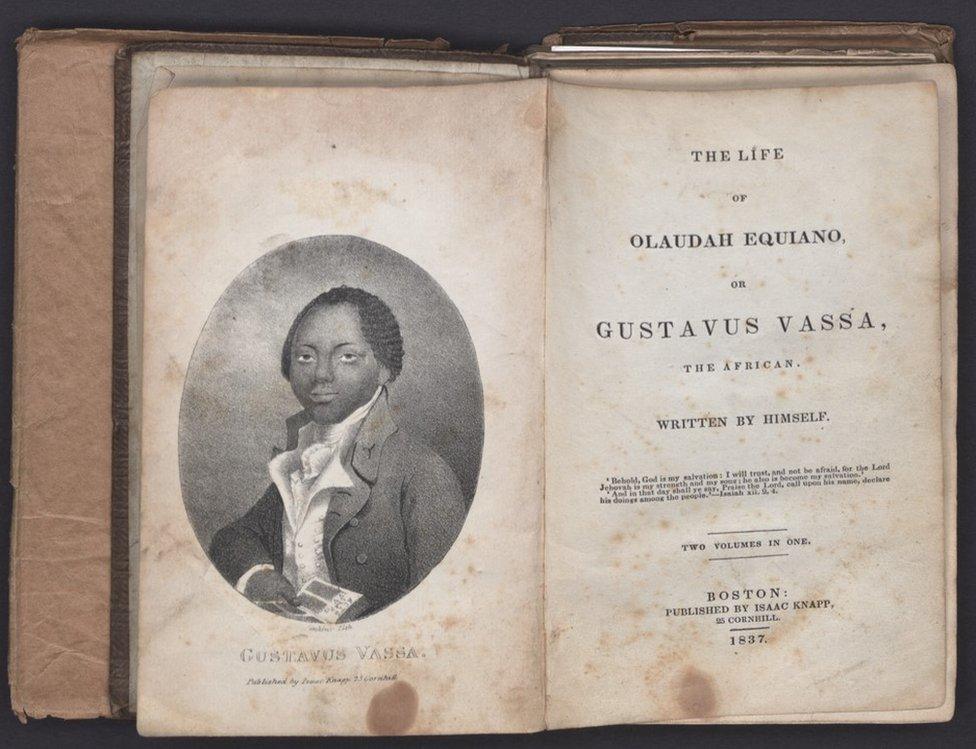
Prof Olusoga said when it was published, people did not believe the book was by an African as it was deemed so well written
"Incorporating the stories of people like Equiano is merely part of a process of looking at all of British history; not just being selective, not only going to the chapters that make us feel good about ourselves or proud."
He adds: "The reason Equiano's story, Equiano's voice, is not as well known as it should be, is because we have a long habit in this country of not wanting to talk about slavery.
"The phenomena of which he is iconic is one that we have written out, edited out of our nation. The reason why Equiano is not a national name is because slavery is not a part of the history that we teach when it should be because I don't think you can understand the 18th century in particular but also the 19th century without reference to slavery."
"We are on a journey in this country and other countries are on similar journeys to try and reconnect to parts of our history that had traditionally been edited out," adds Prof Olusoga.
"This is a richer history as well as a necessary history; this is a more vivid history as well as a history that tells the back stories of more people in this country than the traditional narratives we've had."
Black history: Should it be part of the wider curriculum?
Britain's role in the transatlantic slave trade is part of the national curriculum, external, although it is not statutory. Those aged 11-14 have to be taught about the British Empire between 1745-1901, however the slave trade is one of nine examples given by the Department of Education on what can be taught.
Young people - such as Lavinya Stennett who founded the Black Curriculum campaign group - have been calling for change.
The government has said the "flexibility within the history curriculum means that there is the opportunity for teachers to teach about BAME (Black, Asian and Minority Ethnic) history across a spectrum of themes and eras" so it did "not believe it was necessary to change the curriculum".
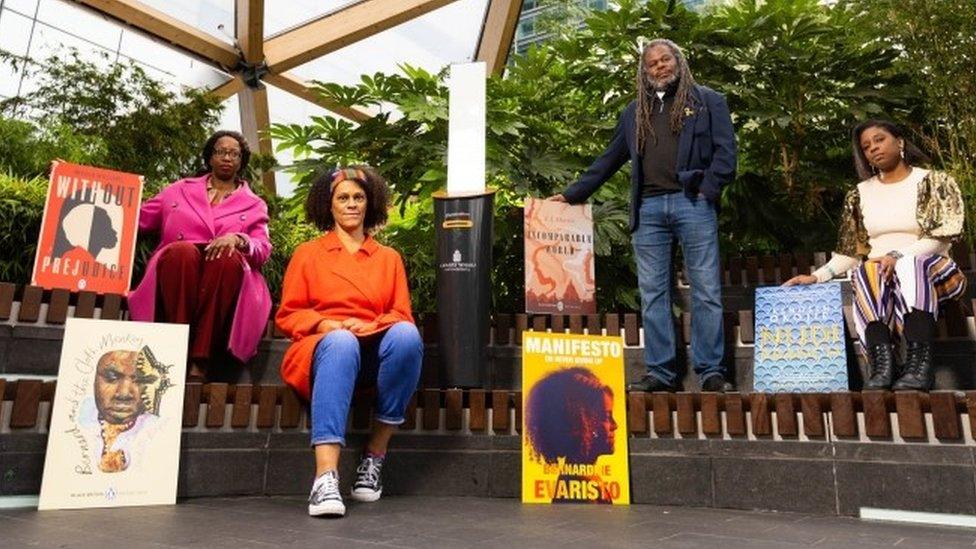
Bernardine Evaristo (second left) has launched a series called Black Britain: Writing Back which features novels by black British authors that have been overlooked
As for the future, the University of Manchester professor says younger generations give him hope.
"I don't know why this generation has a different relationship with the past, goes to the past, expecting and looking for different things to earlier generations, but that's really is my observation about them," he says adding the internet has played a huge part.
"This generation has the greatest knowledge-giving tool ever created and they have access to knowledge that I just did not have when I was younger.
"So when black history was missing - the history of empire, the history of slavery - was missing from my history lessons, I didn't have a place to go to discover those missing chapters. Now they do. And they will go looking for parts of the past that aren't on the curriculum, and they evidently do."
- Published2 February 2021
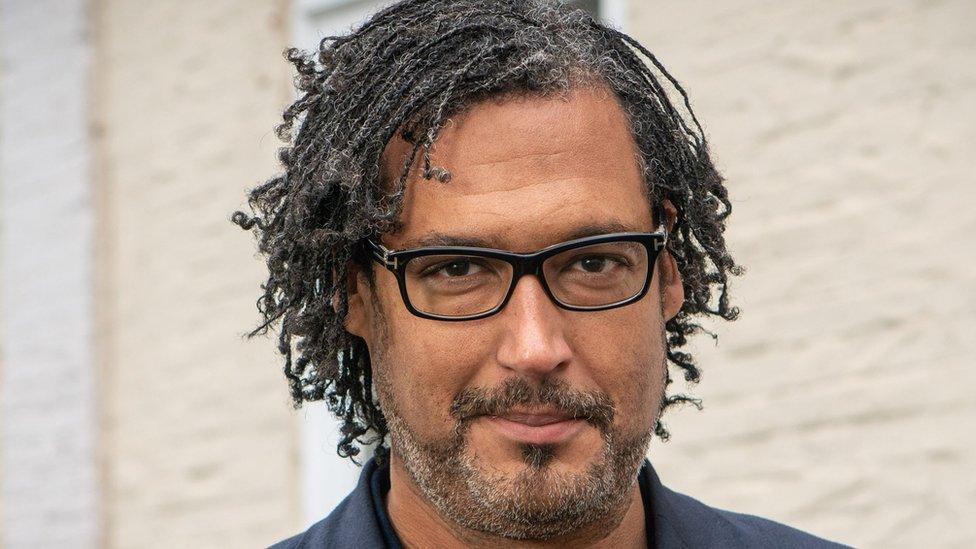
- Published2 October 2023
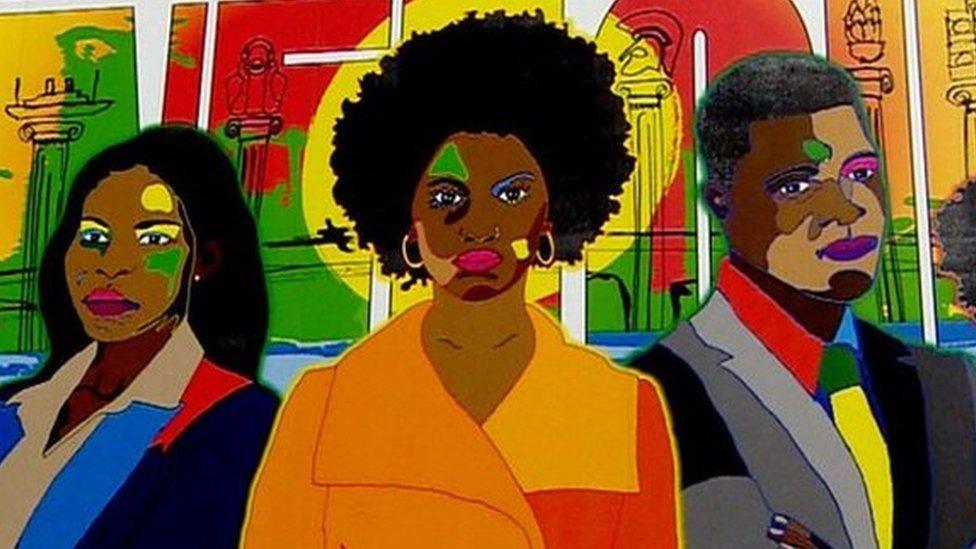
- Published3 October 2023
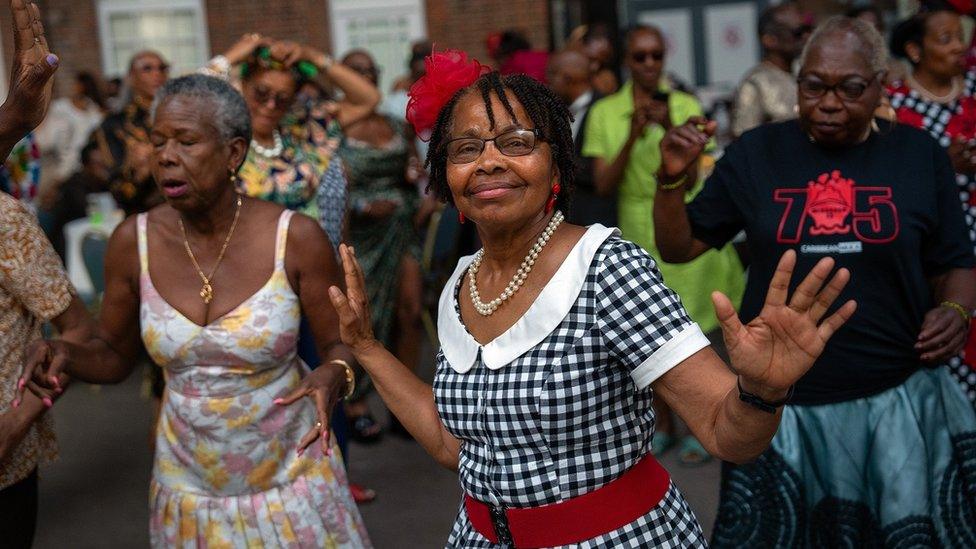
- Published6 March 2020
